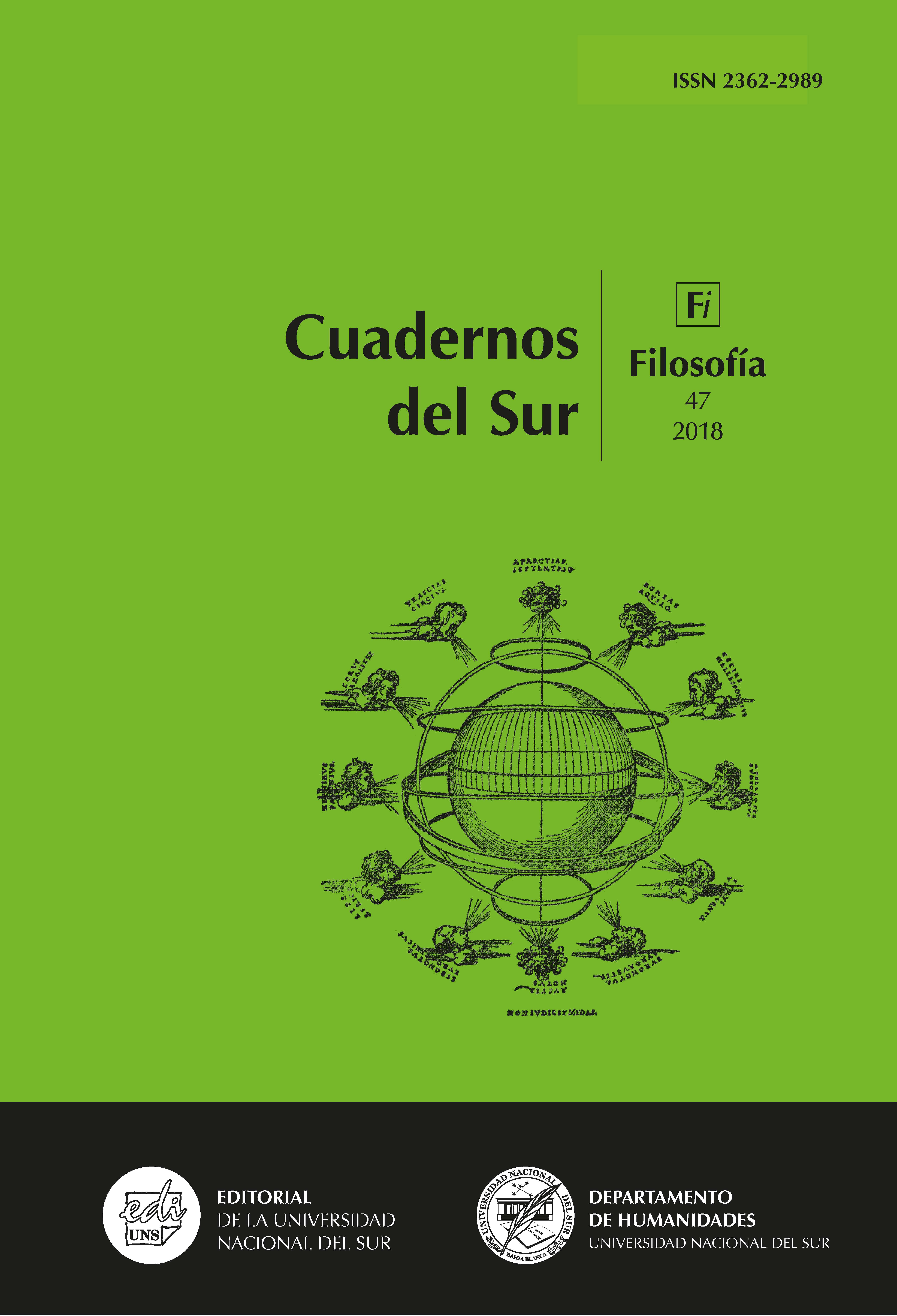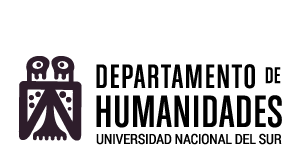Acerca de la naturaleza de la idea rectora del ensayo kantiano “Idea para una historia universal en sentido cosmopolita”
Keywords:
Kant, history, ideaAbstract
The aim of this paper is to expose the concept of ‘idea’ used by Kant in his “Idea for a universal history with a cosmopolitan purpose” (1784). We will show that this idea is a regulative idea of the theoretical reason that is applied to human historical appearances. In this way, this idea directs the purpose of human history. The fact that there is an idea of the purpose of human history can be conceived in an a priori way, though the determination of the nature of this idea has a tentative character. Finally, although the idea of human history has a theoretical character, it can be fruitfully applied on a practical intention.
Downloads
References
Kant, Immanuel (1900ss.), Kant’s gesammelte Schriften, Deutsche (anteriormente Königlich Preußische) Akademie der Wissenschaften (ed.), Berlin y otros, Walter de Gruyter y predecesores (Akademie-Ausgabe = AA).
----- (2009), Crítica de la razón pura, México D. F., Fondo de Cultura Económica, [trad. Mario Caimi (KrV)].
----- (2011), Crítica de la razón práctica, México D. F., Fondo de Cultura Económica, [trad. Dulce M. Granja Castro (KpV)].
----- (2013), “Idea para una historia universal en clave cosmopolita”, en Aramayo, Roberto (ed.), ¿Qué es la Ilustración? Y otros escritos de ética, política y filosofía de la historia, Madrid, Alianza, pp. 99-125, [trad. Concha Roldán y Roberto Aramayo (IaG)].
Allison, Henry (2004), Kant’s Transcendental Idealism. Revised and Enlarged Edition, New Haven/London, Yale University Press.
----- (2009), “Teleology and history in Kant: the critical foundations of Kant’s philosophy of history”, en Oksenberg Rorty, Amélie y Schmidt, James (eds.), Kant’s Idea for a Universal History with a Cosmopolitan Aim. A Critical Guide, Cambridge, Cambridge University Press, pp. 24-45.
Ameriks, Karl (2009), “The purposive development of human capacities”, en Oksenberg Rorty, Amélie y Schmidt, James (eds.), Kant’s Idea for a Universal History with a Cosmopolitan Aim. A Critical Guide, Cambridge, Cambridge University Press, pp. 46-67.
Fiegle, Thomas (2014), “Teleology in Kant’s Philosophy of History and Political Philosophy”, en Formosa, Paul et al. (eds.), Politics and Teleology in Kant, Cardiff, University of Wales Press, pp. 163-179.
Förster, Eckart (2009), “The hidden plan of nature”, en Oksenberg Rorty, Amélie y Schmidt, James (eds.), Kant’s Idea for a Universal History with a Cosmopolitan Aim. A Critical Guide, Cambridge, Cambridge University Press, pp. 187-199.
Kleingeld, Pauline (1999), “Kant, History, and the Idea of Moral Development”, History of Philosophy Quarterly, vol. 16, nº 1, pp. 59-80.
----- (2008), “Kant on historiography and the use of regulative ideas”, Studies in History and Philosophy of Science, vol. 39, nº 4, pp. 523-528.
----- (2009), “Kant’s changing cosmopolitanism”, en Oksenberg Rorty, Amélie y Schmidt, James (eds.), Kant’s Idea for a Universal History with a Cosmopolitan Aim. A Critical Guide, Cambridge, Cambridge University Press, pp. 171-186.
Kuehn, Manfred (2009), “Reason as a species characteristic”, en Oksenberg Rorty, Amélie y Schmidt, James (eds.), Kant’s Idea for a Universal History with a Cosmopolitan Aim. A Critical Guide, Cambridge, Cambridge University Press, pp. 68-93.
Lindstedt, David (1999), “Kant: Progress in Universal History as a Postulate of Practical Reason”, Kant Studien, vol. 90, nº 2, pp. 129-147.
Timmermann, Jens (2015), “Idee, praktische”, en Willaschek, Marcus et al. (eds.), Kant-Lexikon, Berlin, De Gruyter, pp. 1122-1123.
Vaki, Fotini (2014), “What Are We Allowed to Hope? Kant’s Philosophy of History as Political Philosophy”, en Formosa, Paul et al. (eds.), Politics and Teleology in Kant, Cardiff, University of Wales Press, pp. 194-210.
Wood, Allen (2006), “Kant’s Philosophy of History”, en Kleingeld, Pauline (ed.), Toward Perpetual Peace and Other Writings on Politics, Peace, and History, New Haven/London, Yale University Press, pp. 243-261.
----- (2008), “Kant’s Fourth Proposition: the unsociable sociability of human nature”, en Oksenberg Rorty, Amélie y Schmidt, James (eds.), Kant’s Idea for a Universal History with a Cosmopolitan Aim. A Critical Guide, Cambridge, Cambridge University Press, pp. 112-128.
Zocher, Rudolf (1958), “Zu Kants transzendentaler Deduktion der Ideen der reinen Vernunft”, Zeitschrift für philosophische Forschung, vol. 12, ِnº 1, pp. 43-58.
How to Cite
Issue
Section
License
Copyright (c) 2022 Martín Arias Albisu

This work is licensed under a Creative Commons Attribution-NonCommercial 4.0 International License.
Aquellos autores/as que tengan publicaciones con esta revista, aceptan los términos siguientes:- Los autores/as conservarán sus derechos de autor y garantizarán a la revista el derecho de primera publicación de su obra, el cuál estará simultáneamente sujeto a la licencia Atribución-No Comercial 4.0 Internacional CC BY-NC 4.0.
- Los autores/as podrán adoptar otros acuerdos de licencia no exclusiva de distribución de la versión de la obra publicada (p. ej.: depositarla en un archivo telemático institucional o publicarla en un volumen monográfico) siempre que se indique la publicación inicial en esta revista.
- Se permite y recomienda a los autores/as difundir su obra a través de Internet (p. ej.: en archivos telemáticos institucionales o en su página web) una vez publicado su trabajo, lo cual puede producir intercambios interesantes y aumentar las citas de la obra publicada. (Véase El efecto del acceso abierto).










